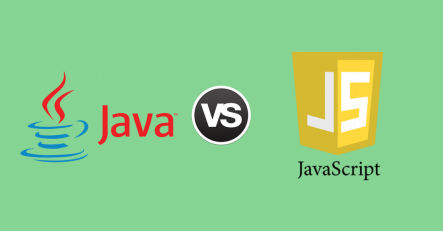People often confuse Java for JavaScript and vice versa. Though most programmers would roll their eyes at this confusion, history had these two languages intersect for a while during early Netscape days. However, since then, both these languages have evolved in completely different ways.
A highly famed web developer, Jeremy Keith once said, “Java is to JavaScript as ham is to a hamster.” If this still doesn’t help you clear your confusion, here’s a brief comparison on Java and JavaScript.
Java is a general-purpose, object-oriented programming language that runs on WORA (Write Once, Run Anywhere) philosophy. Enterprises leverage development services to build Java applications that are compiled into bytecode which runs on the JVM (Java Virtual Machine) implementations. Java is a preferred choice of programming language among developers for web and server-side application development. It is used in Android mobile app development as a default programming language for the OS.
Standardized as ECMAScript, JavaScript along with HTML and CSS is considered one of the most important core elements of web development. It is a scripting language that runs in the browsers to makes web pages interactive and dynamic. A majority of enterprises employ JavaScript to build websites that work well across multiple browsers. Besides web development, JavaScript is also getting popular as a service-side technology with the release of Node.js.
Conclusion:
Whether it’s Java vs JavaScript or any other programming language, the decision ultimately boils down to the requirements of your business and project. Java is a general-purpose language that can be used to build anything like Android apps, enterprise software, server-side applications, Big Data analytics, and more. While JavaScript is still a web technology for creating dynamic single page applications (SPAs), front-end and server-side technologies. It can be used for developing cross-platform mobile apps through platforms like PhoneGap, React Native, etc. Which programming language suits your project needs the best? Let us know in the comments below.
A highly famed web developer, Jeremy Keith once said, “Java is to JavaScript as ham is to a hamster.” If this still doesn’t help you clear your confusion, here’s a brief comparison on Java and JavaScript.
What is Java?
What is JavaScript?
3 Major Differences Between Java and JavaScript:
Comparison
|
Java
|
JavaScript
|
| Compiled vs Interpreted | It is considered to be a compiled programming language as it is compiled into bytecode that runs on a JVM. You require a specialized software to make changes in the Java application environment. | It is considered as an interpreted scripting language. A browser can interpret JavaScript directly in the syntax in which it is coded. Changes in JavaScript can be done even with a simple text editor. |
| Static vs Dynamic Type Checking | It uses static type checking, where the variable type is checked at compile-time. Developers must specify the variable type they create such as string, integer, double, etc. The benefit of static type checking is that it catches type error early in development as the compiler knows the exact data types being used, resulting in faster code execution or less memory consumption. | Just like other scripting languages, it uses dynamic typing, where type safety is verified at runtime. Developers don’t need to specify any type of variable they create. The primary benefit of dynamic checking is developer productivity – they can free assign types at leisure. |
| Class-based vs Prototype-based | It depends on class-based inheritance – a hierarchical, class-based relationship. The objects are defined in a class and inherited through an instance of that class. To accomplish the hierarchy, an object is assigned as a prototype with a constructor function. | It follows prototypal inheritance wherein all objects can be directly inherited from other objects. |
Conclusion:
Whether it’s Java vs JavaScript or any other programming language, the decision ultimately boils down to the requirements of your business and project. Java is a general-purpose language that can be used to build anything like Android apps, enterprise software, server-side applications, Big Data analytics, and more. While JavaScript is still a web technology for creating dynamic single page applications (SPAs), front-end and server-side technologies. It can be used for developing cross-platform mobile apps through platforms like PhoneGap, React Native, etc. Which programming language suits your project needs the best? Let us know in the comments below.

No comments:
Post a Comment
Note: only a member of this blog may post a comment.